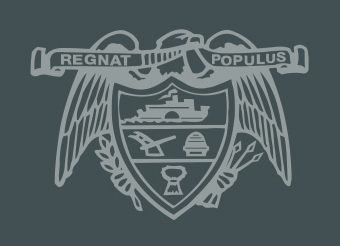
The Fayetteville City Council this week referred an ordinance to regulate short-term rentals to its ordinance review committee for more evaluation. The measure will return for consideration at a future City Council meeting.
A short-term rental is the leasing out of a furnished residential dwelling on a short-term basis, generally less than a month. Popular platforms for renting such units include AirBNB and VRBO. It is estimated there are approximately 500 to 600 short-term rental units in Fayetteville, most in violation of our zoning codes that classify them as hotels/motels and prohibits them in single-family residential areas. In 2019, the City Council directed staff to study the issue and propose changes to our code.
Short-term rentals have many benefits. They help funnel tourists and their dollars into our community, create jobs and additional income streams and help absorb excess tourist capacity when large events exceed the capacity of our hotel industry.
As a frequent traveler, I enjoy staying in Short-term rentals to get an authentic sense of a place by staying in a neighborhood instead of a hotel in a commercial district. Unlike most hotel rooms, short-term rentals often have kitchens, which attracts travelers on a budget, a special diet or with a desire to savor the local flavors from the Farmer's Market. Short-term rentals present the opportunity for unique experiences such as staying in an Airstream or tree house and can feel more like "home" for a person visiting for medical treatment or an extended work assignment. Larger short-term rentals are popular for reunions, parties and other special occasions.
These uses can also create problems. Displacing full-time residents with a steady stream of rotating guests can bring parking problems, over-occupancy and frequent parties or noisy gatherings that can create friction with neighbors. Without the regulatory and safety standards of the hotel industry, some landlords offer properties that are unsafe or unsanitary and evade remitting taxes. The city's proposed ordinance effectively addresses these issues, but a much larger threat remains.
Fayetteville is experiencing a housing crisis driven by rising population, inadequate growth in housing supply, misalignment between housing types and household demographics and a growing gap between wages and the cost of living. According to the latest statistics published by the Northwest Arkansas Council, 26.5 people move into our metro area every day, but new home construction is not keeping up. Additionally, the vast majority of our housing stock is large single-family homes, but 75% of our households have no children present and almost two-thirds are renting. Individual annual income averages $28,508. This yields a housing budget of less than $600 a month, which is the average rent for a studio apartment. That's bad news for a person earning Arkansas' recently raised minimum wage, resulting in a housing budget of only $475 a month.
Short-term rentals are an affordable housing issue. Studio apartments that would rent for $600 per month as traditional rentals are often fetching over $100 a night as short-term rentals. This creates a strong economic incentive for property owners to convert traditional rentals into short-term rentals. The pressure is especially acute on small apartments and homes near downtown and the entertainment district. Every short-term rental conversion reduces the number of traditional rentals available, disproportionately affecting the many low-wage workers who power important sectors of our economy. Competition for the reduced supply drives up rents and forces people to live farther away from work, increasing their transportation costs and our traffic congestion. Additionally, there are cultural and safety impacts when everyday residents are displaced by transient guests and the heart of our city empties during the off season.
Fayetteville is a good investment. We consistently rank as one of the top places to live in the country. Our university, arts and culture, outdoor recreation opportunities and health care facilities draw tens of thousands here every year to experience our high quality of life and unique culture. Buying rental property here gives people a tangible connection and reason to keep coming back. Leveraging it as an short-term rental makes it an especially attractive and profitable venture. Despite our affordability challenges for residents, Northwest Arkansas has a very low cost of living compared to most of the rest of the country. For example, the cost of housing is 43% less than in Dallas. This results in people from outside our region having substantially more buying power than our existing residents. As a Realtor, I've watched many residents get outbid for homes by outside investors snapping them up as rentals or vacation homes that double as short-term rentals. This problem will keep getting worse until we take action.
The city is doing the responsible thing in seeking to minimize the adverse impacts of short-term rentals on our neighborhoods and housing supply, but the real solution to our housing crisis requires us to build more homes. Smaller homes, multi-family housing and mixed-use developments are especially needed, but face fierce opposition from existing residents opposed to change. It's time we embrace that we live in a vital and growing city and welcome new homes in our neighborhoods. With the thoughtful construction of a diversity of housing types, we can meet the housing needs of our full-time residents and welcome guests in short-term rentals.
Until we accomplish this, regulating short-term rentals is essential to protecting our workforce housing supply.
"Short" - Google News
January 07, 2021 at 06:45PM
https://ift.tt/3noWFcD
GUEST COMMENTARY: A "short-term' challenge - Northwest Arkansas Democrat-Gazette
"Short" - Google News
https://ift.tt/2QJPxcA
Bagikan Berita Ini














0 Response to "GUEST COMMENTARY: A "short-term' challenge - Northwest Arkansas Democrat-Gazette"
Post a Comment